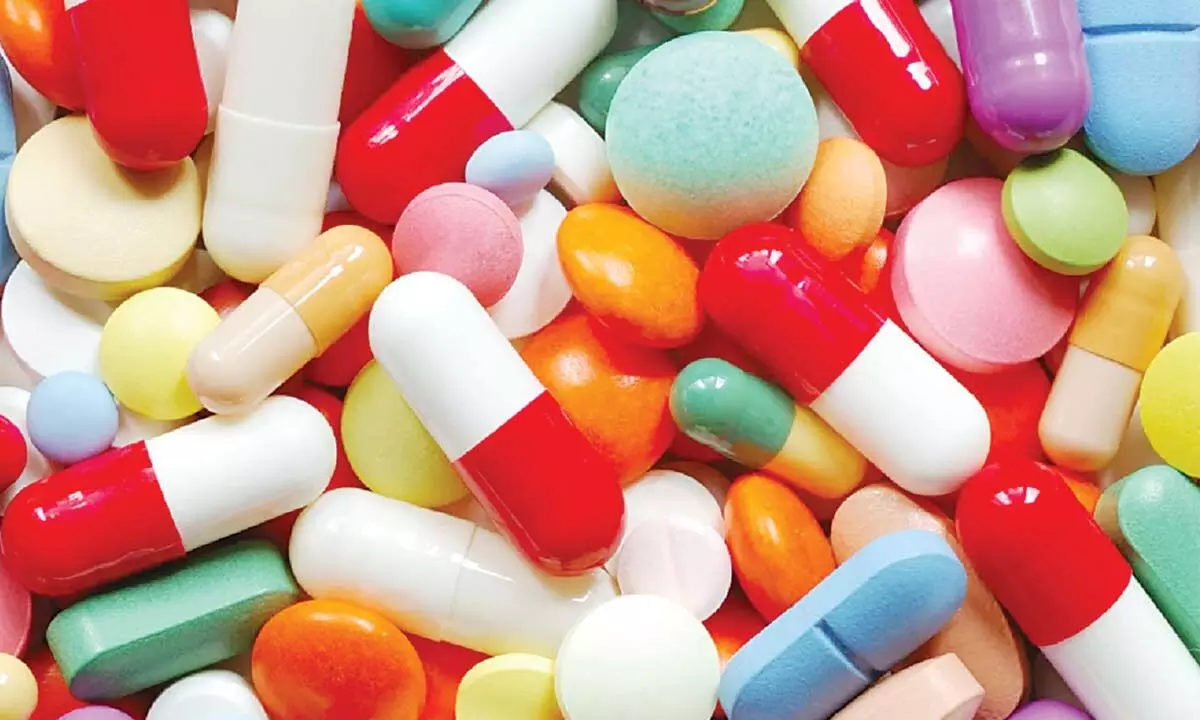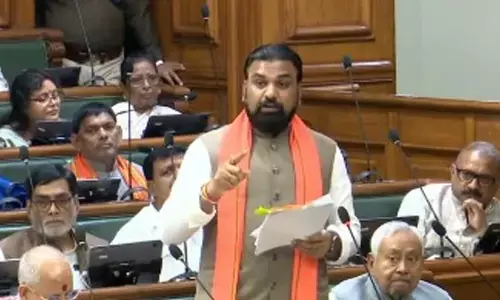SPI scheme set to benefit MSMEs in pharma sector

SPI scheme set to benefit MSMEs in pharma sector
The Department of Pharmaceuticals (DoP), under the Union Ministry of Chemicals and Fertilisers, has recently combined the existing schemes for the development of pharmaceutical industries into a single scheme of ‘Strengthening of Pharmaceutical Industry’ (SPI) to strengthen the existing infrastructure facilities with a total financial outlay of Rs 500 crore
The Department of Pharmaceuticals (DoP), under the Union Ministry of Chemicals and Fertilisers, has recently combined the existing schemes for the development of pharmaceutical industries into a single scheme of 'Strengthening of Pharmaceutical Industry' (SPI) to strengthen the existing infrastructure facilities with a total financial outlay of Rs 500 crore. Under the scheme, the central government will provide financial assistance to pharmaceutical clusters for creation of common facilities to improve the quality and ensure sustainable growth of pharmaceutical clusters in the country. The scheme is further intended to upgrade the production facilities of micro, small and medium enterprises (MSMEs) to meet national and international regulatory standards, through interest subvention or capital subsidy.
The new scheme will also promote knowledge and awareness in and about the pharmaceutical and medical devices industry by taking up studies, building databases and bringing in experts from various fields to share knowledge. The scheme will have the three existing sub schemes-Assistance to Pharmaceutical Industry for Common Facilities (APICF) to strengthen existing pharma cluster capacity through common facilities; Pharmaceutical Technology Upgradation Assistance Scheme (PTUAS) for MSMEs with proven track record to meet national and international regulatory standards; and Pharmaceutical and Medical Devices Promotion and Development Scheme (PMPDS) to conduct study/survey reports, awareness programmes, creation of database and promotion of industry - as its components.
At the cluster level, the APICF envisages to support creation of common facilities like testing labs, common effluent treatment plants and other such common facilities by providing government support in the form of capital grant to the extent of up to 70 per cent subject to a ceiling of a maximum of Rs 20 crore. In order to plug the knowledge gap, the third sub-scheme proposes to conduct a series of awareness programs, conduct sectoral studies and organize similar such programs to generate soft inputs for policy advocacy. APICF will have a financial outlay of Rs 178.40 crore from 2021-22 to 2025-26, PTUAS will have Rs 300.10 crore and PMPDS will have Rs 21.50 crore as financial outlay for the same period. APICF will cater to the requirements of manufacturing units as a special purpose vehicle (SPV) with a minimum of five pharma units as members, to execute project of developing common facility.
The limit of incentive will be 70 per cent of the approved project cost or Rs 20 crore whichever is less. In the case of Himalayan States and States in the North East Region, the grant-in-aid would be Rs 20 crore per cluster or 90 per cent of the project cost of the common infrastructure facilities, whichever is less. The DoP will provide overall policy coordination and management support for the scheme.
Of course, the SPI scheme will help the industry to enhance its quality, technology and infrastructure upgradation and capacity building and encourage collaboration between various stakeholders for the overall development of the sector. It is noteworthy that the scheme is conceived with an objective to further enhance India's existing manufacturing prowess in the pharmaceutical industry. Keeping in view the strategic role of MSMEs, which provide important forward and backward linkages to the industry, and also keeping in view that MSMEs tend to grow in clusters, these schemes shall address the issues of technology upgradation at both unit level and cluster level. The scheme will focus on MSMEs and pharma clusters in the country. In order to strengthen the supply chain of pharmaceuticals industry where MSMEs are an integral part, the government will be incentivizing the intending MSME units going in for acquiring Schedule M certification or WHO GMP Certification through the sub-scheme of PTUAS. Under the sub scheme of PTUAS, the technological upgradation as envisaged in the project proposal now has to be completed in 30 months from the date of first disbursement of loans for interest subvention. Initially, it was 18 months.
Pharma MSMEs, which availed of the benefit under the scheme for interest subvention must achieve technological upgradation within 30 months of receiving the first disbursement of loan, failing which loan will be converted into a normal loan by the lending institution. The MSME unit shall have the option to choose from either capital subsidy or interest subvention. Under the scheme, the MSME pharma clusters can develop common facilities for the regulatory requirements and also can conduct research in collaboration with the National Institutes of Pharmaceutical Education and Research (NIPERs), so that it could support moving the industry from volume to value as the pharmacy of the world. Overall, the new scheme will prove to be a boon to the MSME pharma companies.
(The author is freelance journalist with varied experience in different fields)








